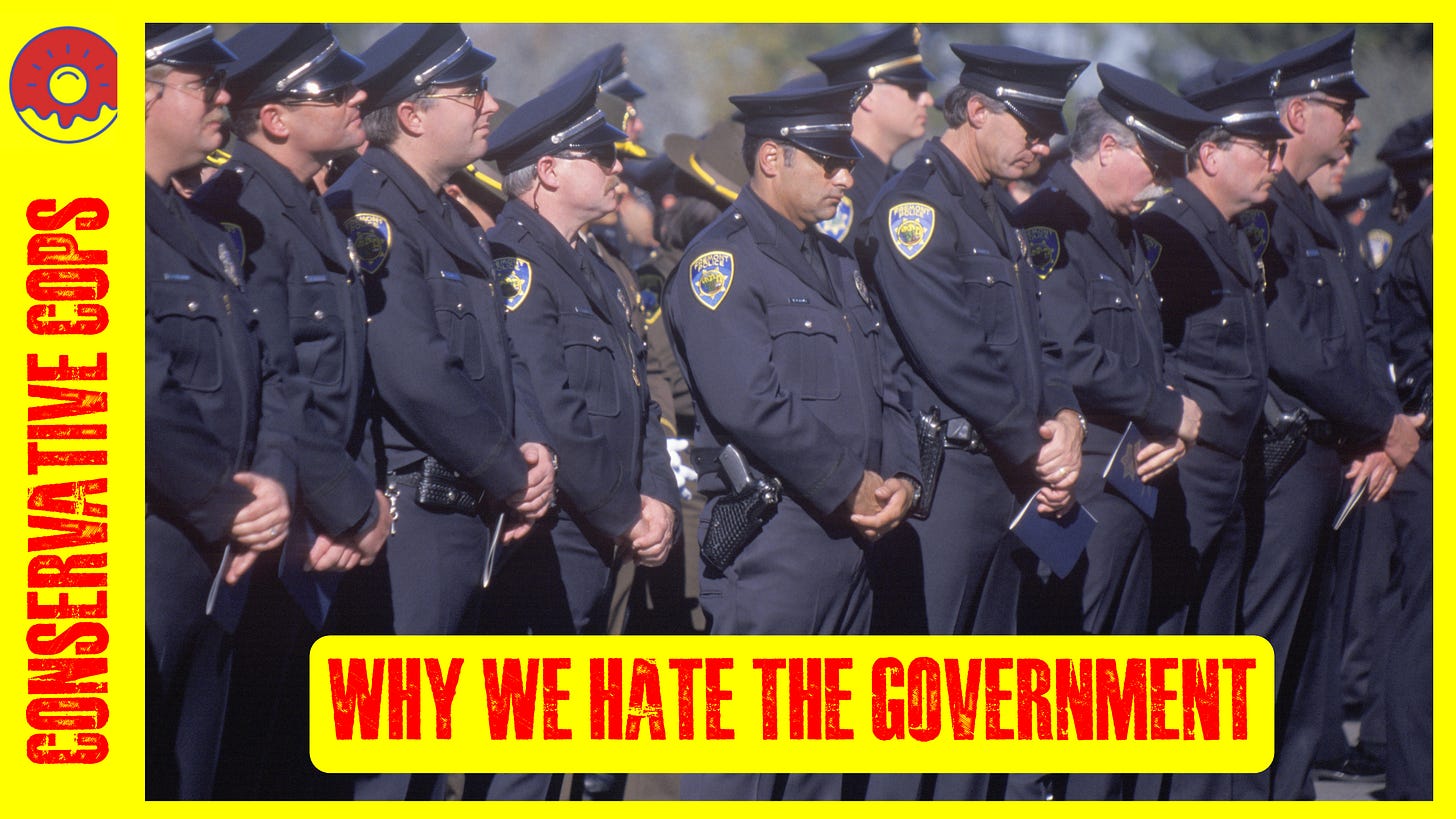4 Reasons Why Cops Hate the Government
No one hates the government more than cops. Here's 4 reasons for you to understand why.
Why Law Enforcement Officers Dislike the Government
Many people assume that because law enforcement officers work for the government, they must be fond of it. However, the reality is quite different. Many officers enter law enforcement to fight crime and protect the innocent, only to find themselves at odds with the very system they serve. Here are some key reasons why law enforcement officers often harbor a deep-seated resentment toward the government.
1. Because the Government Hates Us
One of the most glaring examples of the government's disregard for law enforcement is how quickly politicians are willing to throw officers under the bus. The George Floyd incident is a prime example where politicians threw law enforcement under the bus. If you haven’t seen it yet, I encourage you to watch The Fall of Minneapolis by Alpha News. You will see new body camera footage that shows politicians lied to protect themselves.
Additionally, statements from high-ranking officials exacerbate this sentiment. President Biden's remarks last year that retired law enforcement is fueling a growing anti-government movement is a stark reminder of how out of touch some leaders are with the realities faced by officers. I am a retired police officer and I speak up about government abuse and ineptness because I can. Cops that are working right now cannot speak up for themselves because they have no first amendment rights. But, I can speak up for them and I do. Apparently that makes President Biden think that I am a threat in some way.
Moreover, officers are often asked to enforce laws that many consider unconstitutional, such as gun control measures. Many officers routinely ignore these unlawful and unconstitutional laws. Because our 1A rights have been stripped from us, we can’t speak up and tell the public that we aren’t enforcing these laws. All the while, these same politicians are happy to tell their constituents and the press that we are (even though we aren’t) enforcing unconstitutional laws.
What Cops Really Think About the 2nd Amendment-See Our Poll
So, what do law enforcement officers really think about the 2nd Amendment? There's been a lot of rhetoric in some circles calling police officers "red coats" or "blue isis" (that's a real thing, check out the hashtag #BlueIsis). There is a huge amount of fear mongering that the police will come to your door to confiscate your guns. Essentially, certain …
We See Bureaucracy Up Front and Personal
Law enforcement officers witness the inefficiencies and red tape of bureaucracy daily. From the cumbersome processes required to address simple issues to the layers of approval needed for basic operational needs, the bureaucratic machine is a constant source of frustration.
Much of this bureaucracy is unnecessary, especially when you are a local cop trying to communicate with the federal government. Did you know that local law enforcement doesn’t make arrests for federal law and that federal officers don’t arrest people for state law? Federal law enforcement is so encumbered that it is not uncommon for federal agents to ask local law enforcement to make an arrest so they can go get permission to make that arrest or process the necessary paperwork. That blew me away the first time I encountered that. And that was way back in 1995! it’s even worse now.

We See Government Waste Daily
Officers are acutely aware of government waste. They see over inflated budgets and money funneled into political pet projects that often have little to do with public safety. The frustration is further compounded by witnessing federally subsidized drug dealing, euphemistically referred to as welfare. This misuse of funds undermines the very fabric of the communities officers strive to protect.
My friend fought the VA and social security for years. We served together in the Army and he was blown up in Iraq. He struggled to get help from both agencies. All the while, I’d run across people that had both with no real ailment. They easily got their welfare and VA money and went on to use that money to fuel their criminal ventures like drug dealing. For this reason, many in law enforcement call welfare subsidized drug dealing. You are paying for it!
We Are the Face of Government and We See the People's Hate
Law enforcement officers are the most visible representatives of the government. When citizens call for help or lodge a complaint, it is the police who respond. However, in cities like Oakland, Seattle, and Portland, where government policies have led to the legalization of crime and the criminalization of law enforcement, officers find themselves powerless to assist. If you want to be prophetic, check out Isaiah 5:20.
The public, frustrated by government failures, often directs their anger toward the police, who are seen as the face of the government. This misdirected hate only deepens the divide between law enforcement and the citizens they serve.
While law enforcement officers may work for the government, it does not mean they support or even like it. The systemic issues within the government, coupled with the unrealistic expectations placed on officers, create a hostile environment that breeds resentment. Understanding these perspectives is crucial for fostering better relationships between law enforcement and the communities they protect.





This is a fantastic article that accurately describes the betrayal process by government and leadership against the American law enforcement officer. Keith Graves delivered the receipts on this leadership lesson. I hope all the cops who missed 'The Fall of Minneapolis' take this opportunity to check it out.
Hate. A word I embraced during my 28 years working patrol and traffic. You receive lots of Hate in the field, and unfortunately you give some Hate back. The most difficult Hate is back stabbing Hate from your own side.
I wish I had a better understanding of my Christianity during my working years. It would have helped me deal with Hate in a healthier way, and saved me from a lot of grief and headaches.
"Hatred is a poison that destroys us from within, producing bitterness that eats away at our hearts and minds. This is why the Scriptures tell us not to let a “root of bitterness” spring up in our hearts (Hebrews 12:15). Hatred also destroys the personal witness of a Christian because it removes him from fellowship with the Lord and other believers. Let us be careful to do as the Lord advised and keep short accounts with everyone about everything, no matter how small, and the Lord will be faithful to forgive, as He has promised (1 John 1:9; 2:1)."